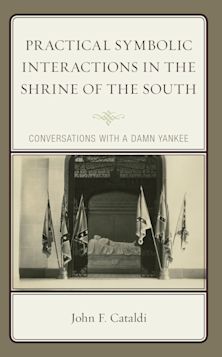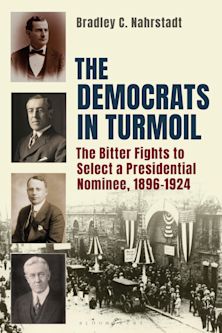The Joke Is on Us
Political Comedy in (Late) Neoliberal Times
The Joke Is on Us
Political Comedy in (Late) Neoliberal Times
Description
This edited volume brings together scholars of comedy to assess how political comedy encounters neoliberal themes in contemporary media. Central to this task is the notion of genre; under neoliberal conditions (where market logics motivate most actions) genre becomes “mixed.” Once stable, discreet categories such as comedy, horror, drama and news and entertainment have become blurred so as to be indistinguishable. The classic modern paradigm of comedy/tragedy no longer holds, if it ever did. Moreover, as politics becomes more economic and less moral or normative under neoliberalism, we are able to see new resistance to comedic genres that support neoliberal strategies to hide racial and gender injustice such as unlaughter, ambiguity, and anti-comedy. There is also an increasing interest with comedy as a form of entertainment on the political right following both Brexit in the UK and the election of Trump in the U.S. Several essays confront this conservative comedy and place it in context of the larger humor history of these debates over free speech and political correctness. For comedians too, entry into popular media now follows the familiar neoliberal script of the celebration of self-help with the increasing admonishment of those who fail to win in market terms. Laughter plays an important role in shaming and valorizing (often at the same time!) the precarious subject in the aftermath of global recession. Doubling down on austerity, self-help policies and equivocation in the face of extremist challenges (right and left), politics foils the critical comedian’s attempt to satirize and parody its object. Characterized by ambiguity, mixed genre and the increasing use of anti-humor, political comedy mirrors the social and political world it mocks, parodies and celebrates often with lackluster results suggesting that the joke might be on us, as audiences.
Table of Contents
Viveca Greene
Chapter Two: Brexit Irony, Caricature and Neoliberalism
Simon Weaver
Chapter Three: What’s Wrong with Slactivism? Confronting the Neoliberal Assault on Millennials
Sophia A. McClennen
Chapter Four: Political Humour in the face of Neoliberal Authoritarianism in “New” Turkey
Secil Dagtas
Chapter Five: A Silly Citizenship Take on Infotainment Satire: The Medium of Televisual Political Satire as Ludic Surveillance
David Grondin and Marc-Olivier Castagner
Chapter Six: The Political Economy of Comedy in Late-Night Shows
Don J. Waisanen,
Chapter Seven: British Comedy and the Politics of Resistance: The Liminality of Right Wing Comedy
James Brassett
Chapter Eight: I Want to Party with You, Cowboy: Stephen Colbert and the Aesthetic Logic of “Truthiness” After Campaign 2016
Aaron McKain and Thomas Lawson
Chapter Nine: From Awkward To Dope: Black Women Comics in the Alternative Comedy Scene
Jessyka Finley
Chapter Ten: Savage New Media: Discursive Campaigns For/Against Political Correctness
Rebecca Krefting
Chapter Eleven: “An Actual Nightmare- but Pretty Good TV”: Comedy/Horror in The Trump Era
Diane Rubenstein
Conclusion: You’re Fired!
Julie Webber
Product details
| Published | 11 Dec 2018 |
|---|---|
| Format | Ebook (PDF) |
| Edition | 1st |
| Extent | 1 |
| ISBN | 9781978751491 |
| Imprint | Lexington Books |
| Illustrations | 3 b/w illustrations; 14 b/w photos; |
| Series | Politics and Comedy: Critical Encounters |
| Publisher | Bloomsbury Publishing |
Reviews

ONLINE RESOURCES
Bloomsbury Collections
This book is available on Bloomsbury Collections where your library has access.



































